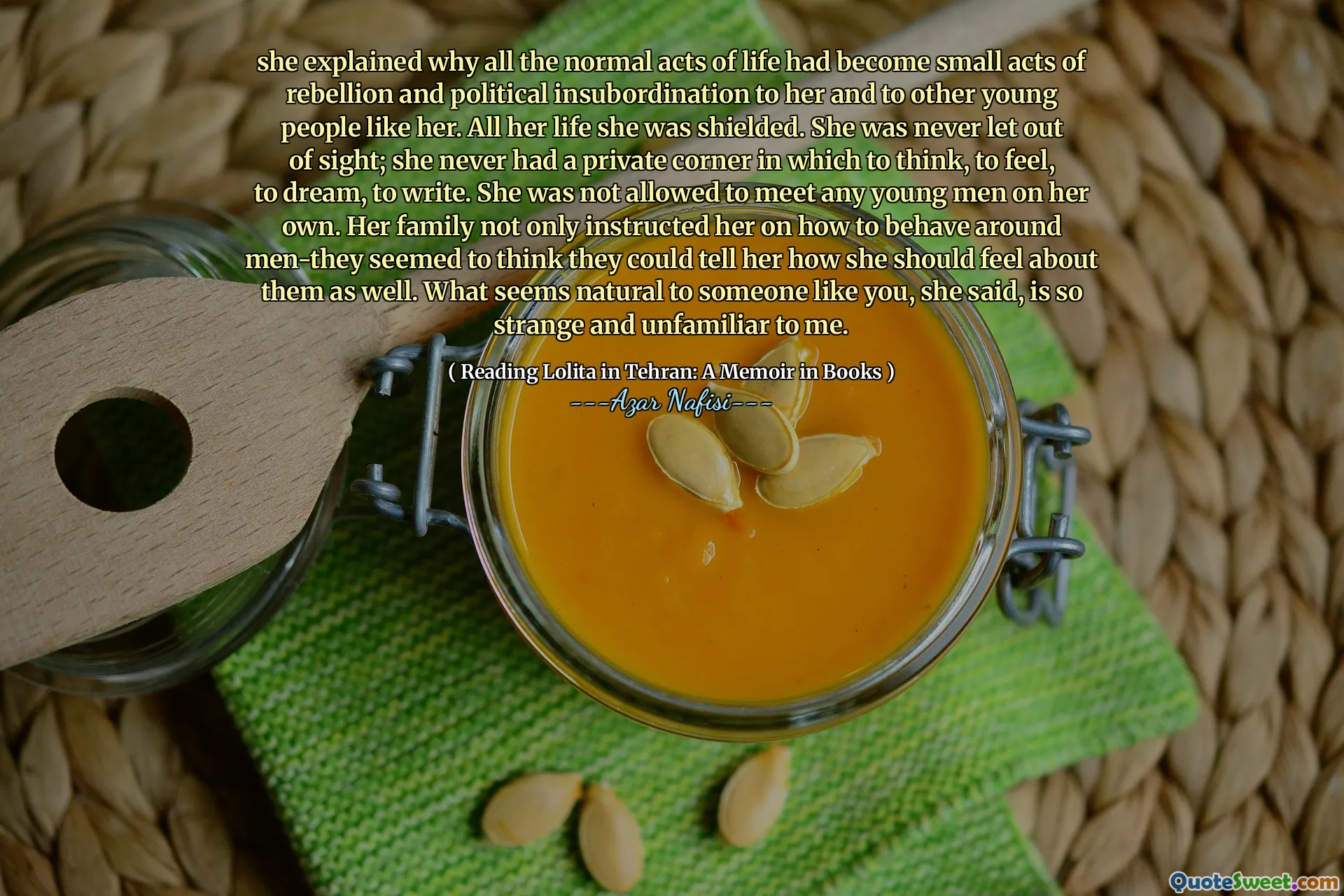
she explained why all the normal acts of life had become small acts of rebellion and political insubordination to her and to other young people like her. All her life she was shielded. She was never let out of sight; she never had a private corner in which to think, to feel, to dream, to write. She was not allowed to meet any young men on her own. Her family not only instructed her on how to behave around men-they seemed to think they could tell her how she should feel about them as well. What seems natural to someone like you, she said, is so strange and unfamiliar to me.
📖 Azar Nafisi
The speaker articulates her perspective on how ordinary behaviors have transformed into forms of rebellion due to her restrictive upbringing. She describes a life where she was constantly monitored and denied personal space, which left her no opportunity to freely explore her thoughts, emotions, or aspirations. This lack of privacy significantly impacted her ability to develop her own identity.
Moreover, her family's rigid instructions on interactions with men not only dictated her behavior but also imposed limitations on her feelings and personal agency. As she reflects on this, she notes that what may seem typical and straightforward to others feels entirely foreign to her, highlighting the stark contrasts between her lived experience and that of others.











